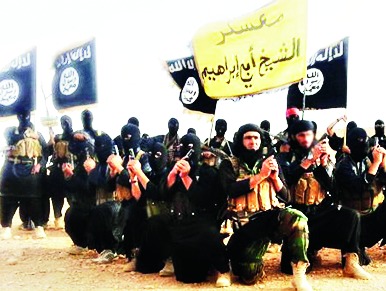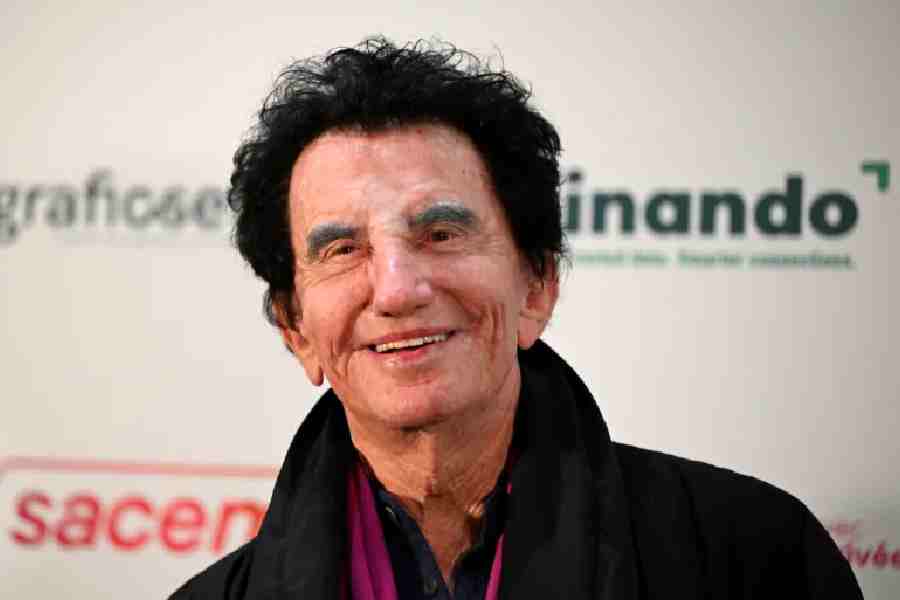
BLACK FLAGS: THE RISE OF ISIS By Joby Warrick, Bantam, Rs 699
The Joker from the Batman series is known for indulging in mindless violence because it was his way of imposing meaning on a seemingly meaningless world. But what if the Joker was a real life character? Would he still be extolled as he is among his fans? Why are Abu Musab al-Zarqawi or Abu Bakr al-Baghdadi not seen as real-life Jokers, people who were and, perhaps, are "trying to find meaning in a meaningless world" by calling themselves mujahids (holy warriors) and dedicating their entire lives to the so-called Holy War to liberate the ummah (the Islamic community) from jahiliyyah (ignorance)? A recent analysis carried out by the National Consortium for the Study of Terrorism and Response to Terrorism between 2002 and 2015 has revealed that the Islamic State was directly or indirectly responsible for terrorist attacks that have killed more than 33,000 people and wounded 41,000. Therefore, it seems fit to call the Islamic State militants mad and delusional. How else would you explain their blood-thirstiness? Joby Warrick's second book, Black Flags: The Rise of ISIS, deals with the popular Middle Eastern supervillains and their race for martyrdom and paradise.
Making use of novelistic tools, Warrick recasts his non-fiction into an adventure tale, which traces the rise of the Islamic State of Iraq and al-Sham. But the narrative hinges more on the figure of Ahmad Fadeel al-Nazal al-Khalayleh, better known as Abu Musab al Zarqawi, than on the Islamic State head, Baghdadi. Born in Zarqa, Jordan, Zarqawi the supervillain's story is not of a "good-guy-gone-bad", but rather a story of "a-bad-guy-gone-good"- in the Islamic State's concept of a good guy of course. He gave up porn, drugs and alcohol, used a knife to peel off a tattoo and turned to god. Warrick traces his rise from a petty belligerent, who went to participate in the Afghan war against the Soviets, to a celebrity villain, who came to be known for his car bombs, so common in Iraq today, and for his penchant for shooting videos of the people he beheaded.
The narrative forces the reader to analyse the intention of these self-proclaimed religious heads and the task that they assign to themselves. Is it merely out of religious fervour and a desire to enlighten the 'ignorant' that they recruit and mobilize people for the Holy War? How 'holy' is their war anyway? Warrick answers these questions by giving the readers an insight into the mind of Zarqawi. He shows how unlike Osama bin laden and the group of people he headed, "who were committed to a wider battle", Zarqawi's battle against the 'infidels' was deeply connected to his personal history and grievances. He despised the Jordanian government and the United States of America. He hated Jordan because it had chosen to maintain cordial relations with Israel. As a child, he had witnessed the Jordanian civil war in which the country's army killed thousands of Palestinians. The civil war had spilled into his largely Palestinian hometown. Zarqawi hated the US for bombing Afghanistan. His mother also revealed that his decision to join the jihadist movement was fuelled by his inability to find employment. Even today, many youths view the Islamic State as an employment option. But it was not just scarring memories and unemployment that led Zarqawi to become the 'sheikh of the slaughterers' as he later called himself. His megalomania also contributed to his zeal to join the jihadist movement. Warrick writes, "A classic narcissist, Zarqawi truly appeared to see himself as the incarnation of one of the ancient Islamic warriors he so admired. Now his belief in his own greatness was swelling like a tumour." It was this narcissism and megalomania that led him to become a law unto himself. He ignored Islamic teachings, rebuffed the warnings of both bin Laden and Ayman al-Zawahiri and his mentor Abu Muhammad al-Maqdisi.
Although the Islamic State started out with empty coffers, it went on to enrich itself with money and arms. It was not too difficult to understand how it did it. It took over Iraqi banks, sold oil and antiques in the black market and taxed the people of the areas under its control. However, the disturbing question that looms large throughout the book is how do smaller Islamist militant organizations, which are active across the Middle East, finance their terrorist activities? Where do they get the money, weapons, chemicals and the equipment to realize their goals? How do they get passports to travel to other countries? It forces the reader to reflect on the insidious nature of terrorism and terrorist networks. A former member of al-Qaida writes in the context of working with Zarqawi, "But there would be plenty of cash from wealthy Gulf patrons... as well as 'full coordination and full cooperation to achieve our joint objectives.'" The other aspect that also gets highlighted in the process is the dangerous habit of foreign superpowers of playing one terrorist organization against the other as a stopgap method to counter terrorism. They fund and arm them without realizing the demons they end up creating.
Both Zarqawi and bin Laden are long dead. But their ideology and legacy live on. If one were to reread the history of the rise of al-Qaida, al-Tawhid wal-Jihad, the organization set up by Zarqawi (who has always and incorrectly been associated with bin Laden's al-Qaida) and the Islamic State, one would find a disturbing similarity in them. The order of events remains the same. The Islamic State militants are now being bombed by a coalition of Western powers, while they continue to spread terror across the world undeterred. In an article published by the militant group, the author writes, "the crusaders and their apostate clients are under the illusion that... they will be able to eliminate all of the Islamic State's provinces at once... In reality, the group's foes will not be able to eliminate it by destroying one of its cities or besieging another of them, or by killing a soldier, an emir or an imam". This is more than empty rhetoric. Herein lies a truth that countries across the world will have to reconcile with. Terrorism today cannot be countered merely with bombs. Today's jihadists are the real-life Suicide Squad. Terrorists can be killed and driven underground, but the ideology that fuels them lives on. Which is why the book ends with the line, "they sometimes get sick, but they never die".
It is not surprising that Black Flags has won a Pulitzer this year. Warrick's narrative is compelling. It is not an inventory of events borrowed from the history of Islamic militancy. Devoid of prejudice and contempt, it allows the reader to form its own opinion.











